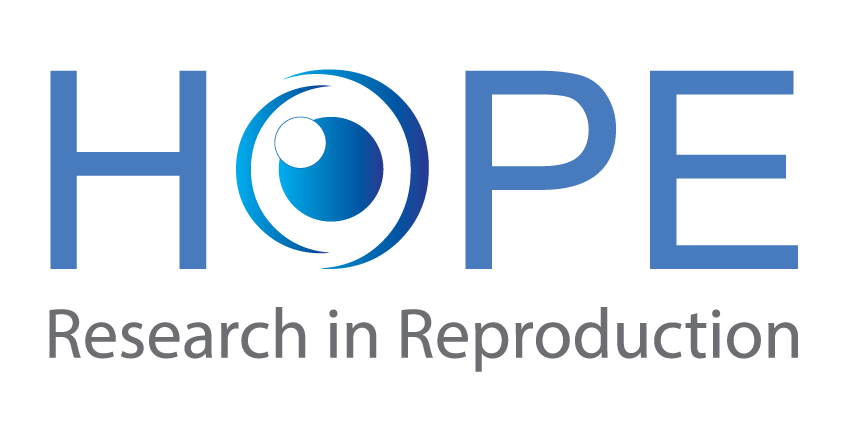Human Reproduction, Volume 36, Issue 9, September 2021, Pages 2453 – 2463 – 2021-06-29
Jie Qiao 1,2, Yunshan Zhang3 , Xiaoyan Liang4 , Tuong Ho5 , Hong-Yuan Huang6 , Sung-Hoon Kim7 , Marie Goethberg8 , Bernadette Mannaerts9 , and Joan-Carles Arce 9,*, on behalf of the Asian Follitropin Delta Phase 3 Trial (GRAPE) Group†
Published: 28 June 2021
Author information
1 Center for Reproductive Medicine, Department of Obstetrics and Gynecology, Peking University Third Hospital, Beijing, China
2 National Clinical Research Center for Obstetrics and Gynecology, Key Laboratory of Assisted Reproduction, Ministry of Education, Beijing Key Laboratory of Reproductive Endocrinology and Assisted Reproductive Technology, Peking University Third Hospital, Beijing, China
3 Reproductive Medical Center and Tianjin Key Laboratory of Human Development and Reproductive Regulation, Tianjin Central Hospital of Obstetrics and Gynecology, Tianjin, China
4 Reproductive Medicine Research Center, The Sixth Affiliated Hospital of Sun Yat-sen University, Guangzhou, China
5 IVFMD and HOPE Research Center, My Duc Hospital, Ho Chi Minh City, Vietnam
6 Department of Obstetrics and Gynecology, Chang Gung Memorial Hospital, Tao-Yuan, Taiwan
7 Department of Obstetrics and Gynecology, University of Ulsan College of Medicine, Asan Medical Center, Seoul, South Korea
8 Global Biometrics, Ferring Pharmaceuticals, Copenhagen, Denmark
9 Reproductive Medicine & Maternal Health, Ferring Pharmaceuticals, Copenhagen, Denmark
Abstract
STUDY QUESTION
Is ovarian stimulation with follitropin delta in its individualised fixed-dose regimen at least as efficacious as follitropin alfa in a conventional dosing regimen in Asian population?
SUMMARY ANSWER
Ovarian stimulation with individualised follitropin delta dosing resulted in a non-inferior ongoing pregnancy rate, a significantly higher live birth rate and a significantly lower incidence of early ovarian hyperstimulation syndrome (OHSS) and/or preventive interventions compared to conventional follitropin alfa dosing.
WHAT IS KNOWN ALREADY
Previous randomised controlled trials conducted in Japan as well as in Europe, North- and South America have demonstrated that ovarian stimulation with the individualised follitropin delta dosing regimen based on serum anti-Müllerian hormone (AMH) level and body weight modulated the ovarian response and reduced the risk of OHSS without compromising pregnancy and live birth rates.
STUDY DESIGN, SIZE, DURATION
Randomised, controlled, multi-centre, assessor-blind trial conducted in 1009 Asian patients from mainland China, South Korea, Vietnam and Taiwan, undergoing their first IVF/ICSI cycle. Randomisation was stratified by age (<35, 35–37, 38–40 years). The primary endpoint was ongoing pregnancy rate assessed 10–11 weeks after embryo transfer in the fresh cycle (non-inferiority limit −10.0%; analysis adjusted for age stratum).
PARTICIPANTS/MATERIALS, SETTING, METHODS
The follitropin delta treatment consisted of a fixed daily dose individualised according to each patient’s initial AMH level and body weight (AMH <15 pmol/l: 12 μg; AMH ≥15 pmol/l: 0.19 to 0.10 μg/kg; min-max 6–12 μg). The follitropin alfa dose was 150 IU/day for the first 5 days with subsequent potential dose adjustments according to individual response. A GnRH antagonist protocol was applied. OHSS was classified based on Golan’s system. Women with an ongoing pregnancy were followed until live birth and 4 weeks after.
MAIN RESULTS AND THE ROLE OF CHANCE
The number of oocytes retrieved was significantly (P < 0.001) lower with individualised follitropin delta versus conventional follitropin alfa (10.0 ± 6.1 versus 12.4 ± 7.3). Nevertheless, compared to the conventional dosing approach, the individualised follitropin delta dosing regimen resulted in on average 2 more oocytes (9.6 ± 5.3 versus 7.6 ± 3.5) in potential low responders as indicated by AMH <15 pmol/l, and on average 3 fewer oocytes (10.1 ± 6.3 versus 13.8 ± 7.5) in potential high responders as indicated by AMH ≥15 pmol/l. Among women with AMH ≥15 pmol/l, excessive response occurred less frequently with individualised follitropin delta than with follitropin alfa (≥15 oocytes: 20.2% versus 39.1%; ≥20 oocytes: 6.7% versus 18.5%; both P < 0.001). The incidence of early OHSS and/or preventive interventions for early OHSS was significantly (P = 0.004) reduced from 9.6% with follitropin alfa to 5.0% with individualised follitropin delta. The total gonadotropin use was significantly (P < 0.001) reduced from an average of 109.9 ± 32.9 μg (1498 ± 448 IU) follitropin alfa to 77.5 ± 24.4 μg follitropin delta. Non-inferiority of follitropin delta in its individualised dosing regimen to conventional follitropin alfa was established with respect to the primary endpoint of ongoing pregnancy rate which was 31.3% with follitropin delta compared to 25.7% with follitropin alfa (estimated mean difference 5.4% [95% CI: −0.2%; 11.0%]). The live birth rate was significantly higher at 31.3% with individualised follitropin delta compared to 24.7% with follitropin alfa (estimated mean difference 6.4% [95% CI: 0.9%; 11.9%]; P = 0.023). The live birth rate for each stratum were as follows for follitropin delta and follitropin alfa, respectively; <35 years: 31.0% versus 25.0%, 35–37 years: 35.3% versus 26.7%, 38–40 years: 20.0% versus 14.3%.
LIMITATIONS, REASONS FOR CAUTION
The trial only covered the clinical outcome of one treatment cycle with fresh cleavage-stage embryo transfers.
WIDER IMPLICATIONS OF THE FINDINGS
The present trial shows that in addition to reducing the early OHSS risk, follitropin delta in its individualised fixed-dose regimen has the potential to improve the success rate in fresh cycles across all ages and with a lower gonadotropin consumption compared to conventional follitropin alfa dosing.
STUDY FUNDING/COMPETING INTEREST(S)
This study was funded by Ferring Pharmaceuticals. J.Q., Y.Z., X.L., T.H., H.-Y.H. and S.-H.K. have received institutional (not personal) clinical trial fees from Ferring Pharmaceuticals. M.G., B.M. and J.-C.A. are employees of Ferring Pharmaceuticals. J.-C.A. has pending and issued patent applications in the WO 2013/020996 and WO 2019/043143 patent families that comprise allowed and granted patent rights related to follitropin delta.
TRIAL REGISTRATION NUMBER
NCT03296527 (clinicaltrials.gov).
TRIAL REGISTRATION DATE
28 September 2017
DATE OF FIRST PATIENT’S ENROLMENT
1 December 2017
KEYWORDS:
anti-Müllerian hormone, follitropin delta, individualised dosing, live birth, ovarian stimulation
